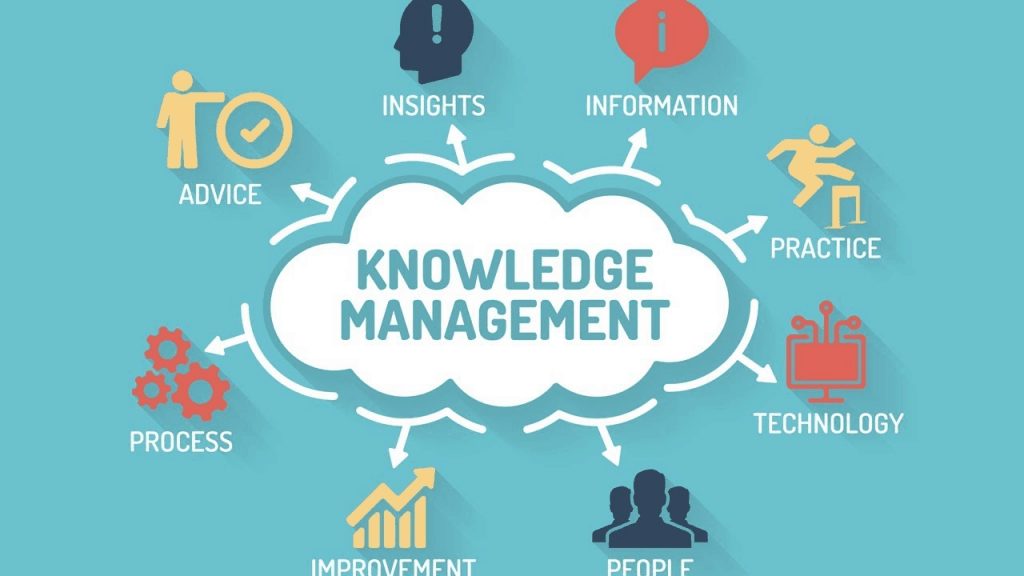
Contents
What is knowledge management?
Knowledge management includes the collection, analysis, dissemination, and general management of all information that is possessed by an organization. A Knowledge Management System carries out these functions and follows best practices to deliver optimal results for the organization using it in an efficient and effective manner.
By definition, a Knowledge Management System (KMS) is a system for applying and using knowledge management principles to typically enable employees and customers to create, share and find relevant information quickly. A Knowledge Management System is a valuable tool for any business operating in our data-driven digital world, particularly those that sell products and/or provide services.
How can a knowledge management system help me?
Functionally, a knowledge management system will collect, store, and retrieve knowledge, find sources of knowledge, monitor and mine repositories for hidden information. It helps automate the knowledge management process and creates efficiencies by providing key players with more time to spend learning from and applying data insights, information, and knowledge.
A successful Knowledge Management System implementation will:
- Manage and capture knowledge
- Search for and retrieve existing knowledge
- Disseminate knowledge, data, and information to those who need it, and
- Facilitate collaboration within and across teams
Each organization that utilizes a Knowledge Management System has a different approach to knowledge management and therefore they are often applied differently to achieve the various goals and objectives of organizations across different industries.
The Best Software for Knowledge Management Explained
This has involved many attempts at internal systems such as internal ‘shared drives’ to huge databases with complicated hyper-links and meta-data. Over time with more and more information being amassed it has become harder and harder to access the specific information required without a lengthy search or an intimate knowledge of where the information is stored. The best software for Knowledge Management simply indexes a wide range of information resources before filtering and prioritising into relevant knowledge, in addition to providing an internal content management function and reports to measure knowledge base usage and knowledge gaps.
Many Information Sources Available From One Central Point
The system itself indexes all the required content from all the relevant sources without the need to move any information to a central location and uses a natural language search function to allow users to access the information quickly and easily. This allows easy and timely deployment of a solution without the need to reformat or re-purpose large amounts of legacy information.
Describe the Issue – Find the Solution
Often users know how to describe what their issue is but do not know how the solution will be phrased or explained. Using the best software for knowledge management, staff, partners and customers can describe the issue, problem or query in their own way and enter the phrase directly into a search. The knowledge management solutions will identify solutions that are known to address similar issues and present these in order of relevance.
Natural Language Questions
Natural language search allows users to ask questions using the language they would normally use in conversation, rather than by typing in keywords. Documents are often written in formal terms which does not reflect the language used when asking a question. The best software for knowledge management now includes Natural language search functionality as one of its key features, since this allows the system to understand the context of the question and not just the keywords which are needed for a successful search result.
This is particularly important in industries that use an industry vocabulary like for example the finance sector where a direct debit is often referred to as DD. Natural language capability can enable the use of the terms that are common to the organisation.
Self Learning to Increase Relevance
A knowledge management system has a self-learning capability which captures the constantly changing flow of information. This continuously revises the index with the actual phrasing used in questions. New content can continue to be added following the original implementation by adding to the content repositories already in use. Self-learning also extends to users identifying the quality of the solutions presented, so solutions that are helpful are naturally presented first.
Pushing Relevant Content to Users
Knowledge management solutions can also facilitate a push strategy allowing specific content to be ‘pushed’ to a specific user group when required. This ensures new information is received by the relevant people as and when required. The system reports as to who and when the information was read.
This allows administration users to identify where the people are who still need to be briefed on any new information. The system can also manage user profiles across an organisation in order to allow specific access to relevant information for each user profile. This enables knowledge to be distributed inside and outside the organisation while retaining control.
Identifying Knowledge Gaps
A knowledge management solution also can identify knowledge gaps and refer unanswered issues and questions to content experts who can respond to the question by adding new information back in to the system. This reduces the need for the same question to be escalated to relevant experts multiple times. Tracking and responding to knowledge gaps also eliminates guesswork on where knowledge gaps might be present before creating new solutions.
Knowledge Management is about people and processes
Knowledge Management is Not a Technology Solution in Itself. Whilst a Knowledge Management System is a technology solution and the overall task of knowledge management is facilitated by technology, knowledge management itself is not a technology discipline, knowledge management as a process has been around for decades, emerging long before the internet and even computers themselves.
It is correct that a modern Knowledge Management System is heavily reliant on IT systems, however, the task of knowledge management itself incorporates several other factors such as organizational processes and its people.
A Knowledge Management System simply supplements the knowledge management process by providing data capture functionality, configurable processes, and the means to analyze, monitor, and share data, information, and organizational knowledge.
For any company irrespective of size and industry the utilization of a robust KMS is critically important for ongoing success, particularly for organizations that rely on data, knowledge, and information as part of their day-to-day operations.




